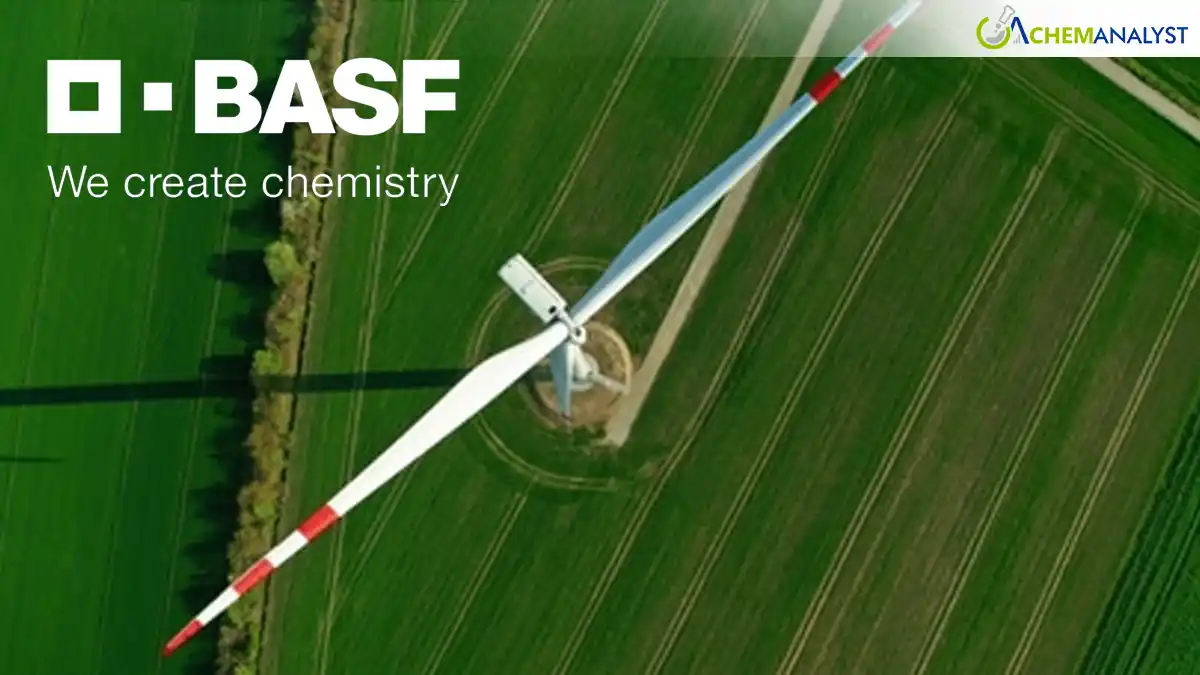Welcome To ChemAnalyst

BASF Intermediates will produce amines in Geismar using 100% renewable electricity, reducing CO2 emissions and supporting customer sustainability goals.
BASF’s Intermediates division has unveiled plans to produce its standard-grade amine portfolio at the Geismar, Louisiana site using 100% renewable electricity. This transition, slated to commence in the fourth quarter of 2025 and continue through 2026, aligns with similar initiatives currently underway at BASF’s European sites. The renewable electricity will be sourced through solar and wind energy, with the associated renewable electricity credits specifically allocated to the production of amines at Geismar. This initiative exemplifies BASF’s broader commitment to achieving net-zero emissions by 2050, ensuring that sustainability goals are pursued without compromising product quality or the reliability of supply.
By integrating renewable electricity credits and refining production processes, BASF Intermediates is generating tangible reductions in the product carbon footprint (PCF) of its amine portfolio. Kevin Anderson, Vice President of Business Management for Amines & Specialty Intermediates, Americas, emphasized the transformative nature of this approach: “This is a transformation in how we think about carbon dioxide emissions in our value chain. Our customers can now benefit from lower Scope 3 emissions without any disruption to their operations.” Through these measures, BASF aims to offer customers environmentally responsible solutions while maintaining operational excellence.
The implementation of renewable electricity credits at the Geismar site is projected to reduce approximately 25,000 tons of CO2 equivalents annually compared to the 2024 baseline. This achievement translates to an average PCF reduction of around 4.5% across the entire amines portfolio. It represents a significant step forward for BASF Intermediates in contributing to BASF’s overall corporate objective of reducing Scope 1 and 2 emissions by 25% by 2030 relative to 2018 levels. This milestone underscores the division’s commitment to advancing sustainability in the chemical manufacturing sector while delivering products that meet the high standards expected by its customers.
Mike Sowinski, Head of Sales at BASF Intermediates Americas, highlighted the broader impact of this initiative: “By investing in renewable electricity, we empower our customers to advance on their sustainability path. We’re committed to developing innovative solutions that align with their environmental goals. We look forward to collaborating with our customers to further reduce their product carbon footprints.” This approach demonstrates how BASF leverages both technological innovation and strategic partnerships to enhance sustainability across its value chain.
BASF’s amines portfolio is highly diverse, encompassing roughly 300 different products that serve as essential chemical intermediates for a variety of industries. These versatile amines are employed in the production of process chemicals, pharmaceuticals, crop protection products, cosmetics, and detergents. Additionally, they are key ingredients in the manufacture of coatings, specialty plastics, composites, and specialty fibers. By transitioning to renewable electricity at Geismar, BASF ensures that its wide-ranging amine portfolio not only maintains its performance standards but also contributes meaningfully to the company’s sustainability objectives, benefiting both customers and the environment.
We use cookies to deliver the best possible experience on our website. To learn more, visit our Privacy Policy. By continuing to use this site or by closing this box, you consent to our use of cookies. More info.
